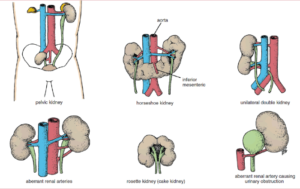Congenital Kidney and Urinary Tract Anomalies: Early Diagnosis and Treatment
Congenital anomalies of the kidney and urinary tract (CAKUT) are among the most common birth defects, affecting 1 in 500 newborns. These anomalies encompass a broad spectrum of structural and functional abnormalities, ranging from minor issues to severe complications that may impact a child’s health and quality of life. Early diagnosis and appropriate treatment are crucial for ensuring optimal outcomes.
Here, we will explore the importance of early detection, common symptoms, diagnostic techniques, and treatment options for congenital kidney and urinary tract anomalies. Consulting a skilled pediatric surgeon in Thane and Bandra can make all the difference if you’re searching for expert guidance.
Understanding Congenital Kidney and Urinary Tract Anomalies
CAKUT encompasses conditions such as:
- Hydronephrosis: Swelling of the kidneys due to urine buildup.
- Kidney Dysplasia: Malformation of kidney tissues.
- Vesicoureteral Reflux (VUR): Backflow of urine from the bladder to the kidneys.
- Duplicated Ureters: Presence of two ureters instead of one for a kidney.
- Posterior Urethral Valves (PUV): Obstruction in the male urethra.
These anomalies may be detected during routine prenatal ultrasounds or after birth due to urinary symptoms or recurrent infections.
Importance of Early Diagnosis
Early detection is essential for mitigating potential complications like kidney damage, urinary tract infections (UTIs), or high blood pressure. Common indicators in newborns and young children include:
- Recurrent UTIs
- Poor growth or weight gain
- Swollen abdomen
- Difficulty urinating
- Blood in the urine
Timely intervention prevents the progression of these conditions and ensures a better quality of life for affected children.
Diagnostic Approaches
Advancements in medical imaging and diagnostic tools have significantly improved early detection. Key techniques include:
- Prenatal Ultrasound: Identifies kidney abnormalities in utero.
- Postnatal Ultrasound: Evaluates kidney and bladder function after birth.
- Voiding Cystourethrogram (VCUG): Detects reflux and structural issues.
- Magnetic Resonance Urography (MRU): Provides detailed imaging of the urinary tract.
A comprehensive evaluation by an experienced pediatric surgeon in Thane and Bandra is vital to confirm the diagnosis and plan treatment.
Treatment Options
The treatment of CAKUT depends on the severity of the condition:
- Conservative Management: Monitoring with regular imaging, dietary changes, and medications to prevent infections or manage symptoms.
- Minimally Invasive Surgery: Procedures like ureteral reimplantation or endoscopic valve ablation for less severe anomalies.
- Major Reconstructive Surgery: Required for complex anomalies such as PUV or severe hydronephrosis.
- Dialysis or Transplant: In rare cases of kidney failure.
Parents should work closely with a pediatric surgeon to tailor the treatment plan to the child’s unique needs.
Why Choosing the Right Pediatric Surgeon Matters
The management of congenital kidney and urinary tract anomalies requires specialized care from a trained expert. A skilled pediatric surgeon plays a pivotal role in not only diagnosing and treating these conditions but also ensuring the child’s long-term health and development.
From conducting advanced diagnostic procedures to performing minimally invasive surgeries, the expertise of a pediatric surgeon can significantly impact outcomes. Furthermore, they provide essential guidance to parents, addressing concerns and creating tailored treatment plans.
For families in search of compassionate and experienced care, consulting Dr. Apoorva Kulkarni, a trusted pediatric surgeon in Thane and Bandra, is a step toward ensuring the best for your child.

